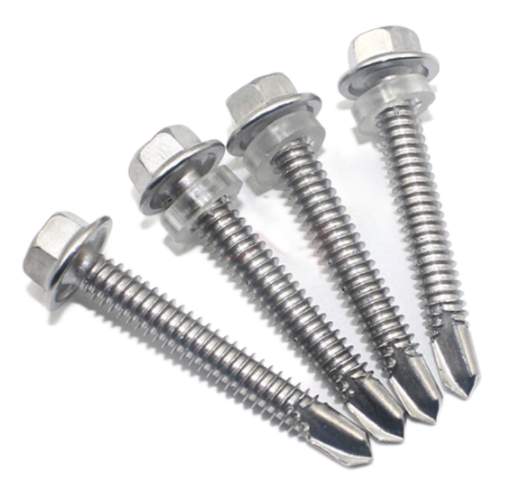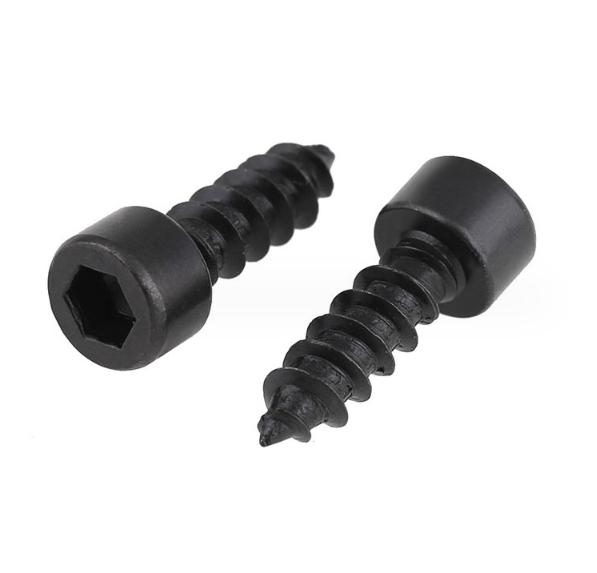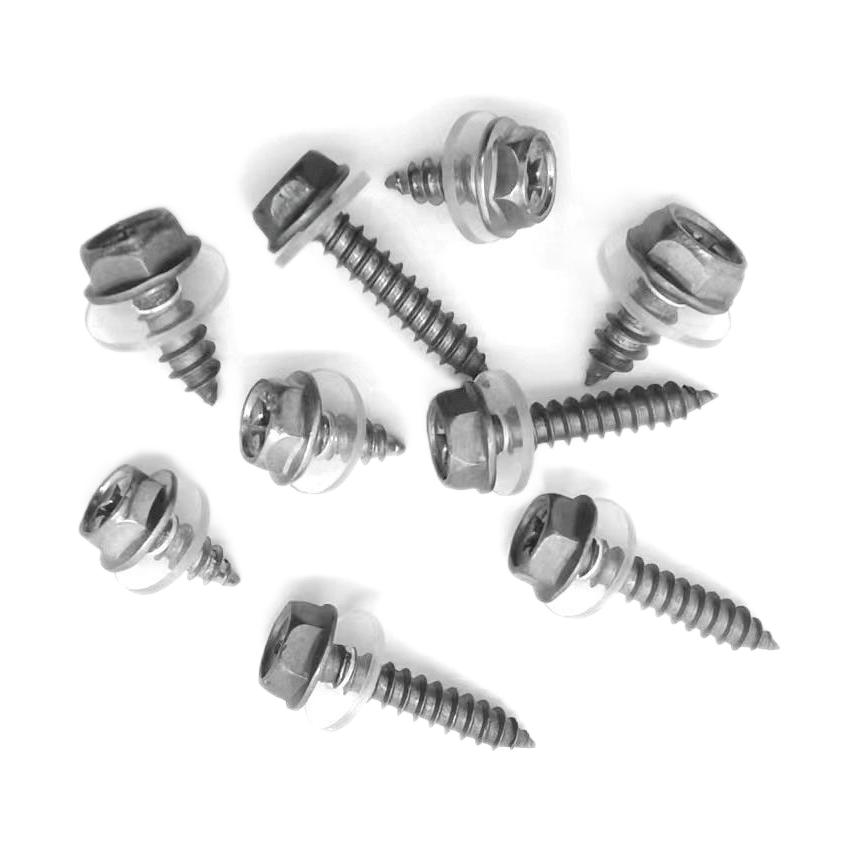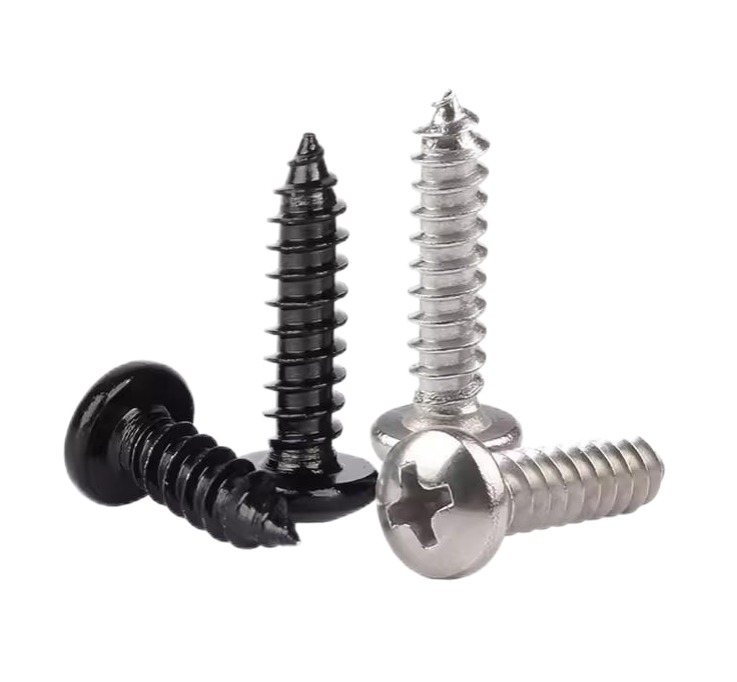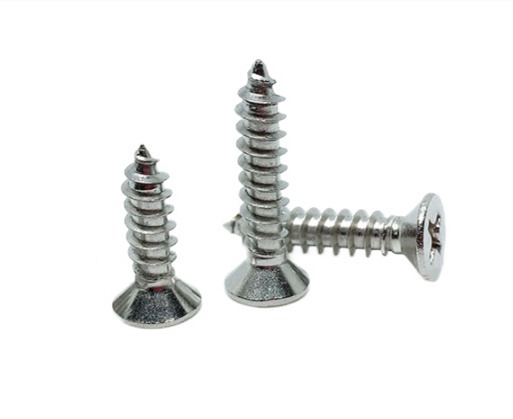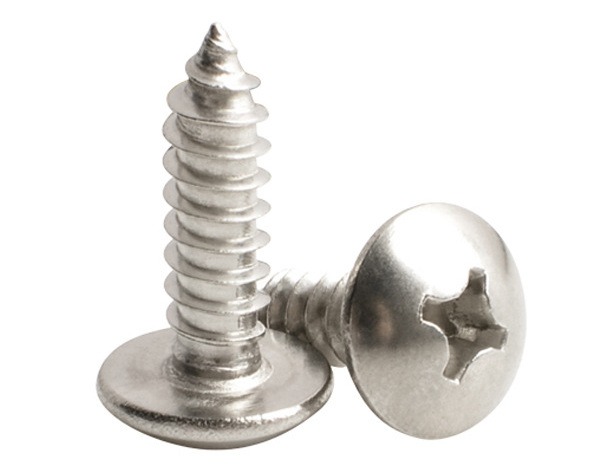Self-Tapping Screws: Threading Convenience into Diverse Applications
Self-tapping screws, also known as self-drilling screws, are a category of fasteners that streamline the assembly process by eliminating the need for pre-tapped holes. These screws boast the ability to create their own threads within the material they are being driven into, offering a practical and time-saving solution across various industries.

Understanding Self-Tapping Screws
Unlike traditional screws that require pre-drilled holes with matching threads, self-tapping screws feature a specially designed tip and thread pattern that allows them to form their own thread as they are inserted. This eliminates the additional step of drilling pilot holes, which translates to faster assembly times and increased efficiency, particularly when dealing with a large number of connections.
The core functionality of self-tapping screws lies in their ability to deform the material they are being screwed into. The specific mechanism by which this deformation occurs depends on the type of self-tapping screw being used.
Common Types of Self-Tapping Screws
Self-tapping screws come in a variety of configurations, each suited to specific applications and material properties. Here’s a breakdown of some of the most common types:
- Thread Forming Self-Tapping Screws: These screws typically require a pre-drilled hole with a diameter slightly smaller than the screw’s core diameter. As the screw is inserted, its threads compress the material, essentially forming matching threads within the hole. This type of screw works best with soft and ductile materials like thin sheet metal or plastic.
- Thread Cutting Self-Tapping Screws: As the name suggests, these screws feature sharp cutting edges along the threads near the tip. During insertion into a pre-drilled hole, these cutting edges remove material from the workpiece, creating corresponding threads that the screw can engage with. Thread cutting screws are suitable for harder or more brittle materials that wouldn’t deform readily under pressure from a thread forming screw.
- Thread Rolling Self-Tapping Screws: These screws utilize a unique thread design and a specifically shaped tail. As the screw is inserted and torque is applied, the threads and tail essentially roll the material in the hole, forming complementary threads. This approach offers lower insertion torque compared to thread cutting screws and can be used with thicker materials due to the reduced friction involved.
- Drill Point Self-Tapping Screws: These versatile screws incorporate a drill tip at the very leading end. This drill tip allows the screw to penetrate the material without the need for a pre-drilled hole. Drill point self-tapping screws are particularly useful for working with sheet metal, steel plates, and other materials where pre-drilling might not be feasible.

Material Selection Considerations for Self-Tapping Screws
When choosing self-tapping screws, it’s crucial to consider the material they will be used with. Here are some key factors to keep in mind:
- Material Thickness: The thickness of the material will influence the type of self-tapping screw you need. Thread forming screws are generally limited to thinner materials, while thread cutting and drill point screws can handle thicker materials.
- Material Hardness and Brittleness: Harder and more brittle materials require self-tapping screws with sharper cutting edges, such as thread cutting screws. Thread forming screws might not be suitable for very hard or brittle materials.
- Material Ductility: Ductile materials like soft metals or some plastics can work well with thread forming screws, as these screws rely on deforming the material to create threads.
Widespread Applications of Self-Tapping Screws
The convenience and efficiency offered by self-tapping screws have led to their adoption across a wide range of industries:
- Construction: In the construction sector, self-tapping screws are commonly used for connecting lightweight metal structures, fastening roof and wall panels, and securing cladding materials. Their ease of use and ability to work with sheet metal make them ideal for various construction applications.
- Machinery and Equipment Manufacturing: Self-tapping screws play a vital role in the assembly of machinery and equipment. They are used to secure thin-walled enclosures, fix machine components, and connect electrical components within equipment housings. Their time-saving nature and ability to create strong connections make them valuable for production lines.
- Automotive Manufacturing: The automotive industry relies heavily on self-tapping screws for assembling various car parts. From attaching interior trim panels to securing body panels and components, self-tapping screws offer a reliable and efficient way to join different materials used in car manufacturing.
- Furniture Manufacturing: Furniture makers often utilize self-tapping screws to assemble furniture pieces constructed from wood panels, plastic components, or a combination of materials. The ability to join different materials without pre-drilling holes makes self-tapping screws a practical choice for furniture assembly.
- Electrical and Appliance Manufacturing: The internal components of electrical appliances and electronic devices often involve the assembly of delicate circuit boards and other lightweight parts. Self-tapping screws, particularly thread forming or thread rolling varieties, provide a way to securely fasten these components without damaging them due to the lower torque required compared to thread cutting screws.

Additional Factors to Consider When Using Self-Tapping Screws
- Pilot Hole Recommendation: Even with self-drilling screws, using a pilot hole with a diameter slightly smaller than the screw’s core can improve the overall quality of the joint and minimize potential damage to the material, especially when working with thicker or harder materials.
- Screw Size and Strength: Selecting the appropriate screw size and strength is crucial for optimal performance. A screw that is too small might not create strong enough threads or provide sufficient holding power, while an oversized screw could damage the material.
- Over-Tightening: Avoid over-tightening self-tapping screws, as this can strip the threads or damage the material. Using a screwdriver with a proper clutch or torque-limiting feature can help prevent over-tightening.
- Corrosion Resistance: When working in environments with moisture or potential exposure to corrosive elements, consider using self-tapping screws made from corrosion-resistant materials like stainless steel or zinc-plated steel.

Conclusion
Self-tapping screws have become an indispensable element in modern assembly processes across numerous industries. Their ability to eliminate the need for pre-drilling holes translates to faster assembly times, improved efficiency, and cost savings. With a variety of types available to suit different materials and applications, self-tapping screws offer a practical and versatile solution for creating strong and reliable connections. As technology progresses, further advancements in self-tapping screw design and functionality can be expected, ensuring their continued relevance and importance in various sectors.



